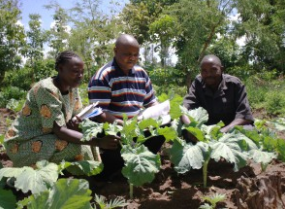Climate Smart Agricultural Landscapes in East Africa
American exporters of high technology focused to ECO systems, for Fresh Fruits and Vegetables, with modern system, Aeroponic system, Eco tech irrigation systems, desalination, R&D in crop yields (not genetics please), etc, to African countries. This connection in both directions, could be an interesting App as our Laser Trade App. But here more interesting, to take a look ot our partner Markmarine about his patent of Agroships: a newly developed method of farming that allows delivery of fresh vegetables to locations with climate conditions that do not favour local production, Aeroponic Cultivation in containers that are to be transported in ships to destination for its commercialisation, whereby allowing the vegetable to arrive fresh, alive and ready for consumption. In aeroponic growing the surroundings of the roots are kept clean and free of diseases and plagues so the plants can grow healthier and quicker that those grown in soil.
Upon arrival to destination, the plant, which will have completed its growth during the journey, will be ready for distribution and sale; fresh and alive since it keeps its roots.
New from EcoAgriculture.com
ISSUES
Addressing the global challenges of climate change, hunger, and poverty requires agricultural landscapes that both are resilient to climate change and store carbon. However, adaptation and mitigation activities tend to be approached separately.
At the same time, global climate finance has until now largely bypassed the smallholder farmers most vulnerable to climate change impacts, partly because of “last mile” capacity challenges in developing countries. Shaping carbon projects together with rural communities that are feasible, effective, and equitable is a major challenge for a climate-smart future.

OUR ROLE
EcoAgriculture Partners works with local climate smart agriculture project leaders to evaluate their institution’s capacity needs, plan actions to address them, and evaluate the effectiveness of those actions. We design and execute research projects together with local project leaders that provide direct benefits to local farmers and institutions while also influencing the design and implementation of climate smart agriculture programs around the world.
We lead participatory action research projects that help build local institutional capacity while investigation how best to build all aspects of local institutional capacity. We publish our results, together with local partners, in peer-reviewed journals, so that both the important methodology for project research and its critical findings are shared with the global development, agriculture, and climate change communities of practice around the world.

